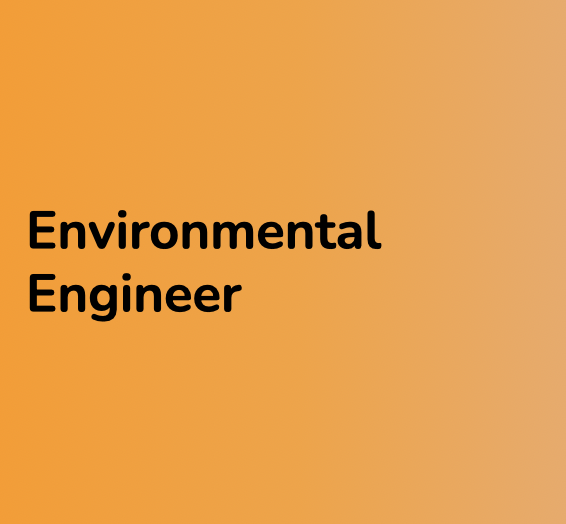
Advanced Manufacturing Career Pathways
Table of Contents
Chemical engineers apply the principles of chemistry, biology, physics, and math to change raw materials into everyday products in a safe and cost-effective way.
Civil engineering involves the design, planning, construction, and maintenance of public infrastructure such as roads, railroads, bridges, airports, dams, and water treatment systems.
Electrical engineering often overlaps with mechanical engineering but focuses on equipment that uses or produces electricity: such as motors, radar and navigation systems, power generation equipment, and communications systems.
Engineering Management:
Engineering managers plan, direct, and coordinate activities in architectural and engineering companies. Engineering managers can work in a variety of engineering disciplines such as chemical engineering, electrical engineering, industrial engineering, and many more.
Environmental Engineering:
Environmental engineering is related to civil engineering and applies principles of engineering, soil science, biology, and chemistry to develop solutions to environmental problems. Environmental engineering deals with pollution prevention, sustainability, water and air quality, wastewater treatment, and land and soil restoration.
Industrial Engineering:
Industrial engineering or manufacturing engineering involves figuring out how to do things better, designing manufacturing processes and systems that improve quality and productivity and reduce waste. Another name for this role is process engineering.
Metallurgical Engineering:
Metallurgical engineering focuses on extracting and refining metals from deep within the earth and engineer new alloys to create complex magnets, batteries, semiconductors, and sensors used in high-tech industries.
Mechanical Engineering:
Mechanical engineers create and develop tools, engines, machines, and other moving parts for a variety of industries including aerospace, semiconductors, HVAC, alternative energy, petroleum, mining, medical devices, and nanotechnology.
Engineering uses science and technology to design and build structures, machines, engines, and more.
Visit our engineering education/training page to see a comprehensive list of Montana engineering training programs.

Chemical Engineering
In-demand Specialties:
Material Engineering
Semiconductor Processing Engineering
Education:
Entry-level positions require a bachelor’s degree in engineering. Employers often prefer to hire graduates of ABET-accredited engineering programs. In chemical engineering, ABET-accredited programs include courses in chemistry, physics, and biology and the application of these sciences to process design and analysis.
High-Growth Jobs:
Chemical engineering is an emerging high-growth role in Montana. Read on to learn more about this rapidly growing career.

Suggested Montana Careers
-

Median MT Salary: $101,000
MT Growth Rate: 21%

Core Skills
Technical Skills
Analytical or scientific software like Minitab
Computer-aided design (CAD) software for developing materials and products
Instrumentation and process control
Project management software like Microsoft Project or Oracle Primavera Enterprise Project Portfolio Management
Query languages like SQL to work with databases
Strong foundation in biology, chemistry, and math.
Writing documentation
Soft Skills
Analytical
Communication
Creativity
Organization
Problem-solving
Teamwork

Education:
Civil engineers typically need a bachelor's degree in civil engineering or a related field. Civil engineering programs include coursework in math, physics, engineering mechanics, and construction systems. Courses may include a mix of academic learning and laboratory work. Employers usually prefer to hire graduates of civil engineering programs accredited by ABET. These roles are commonly found at engineering firms, construction companies, energy & utilities providers, and government positions.
High-Growth Jobs:
Emerging high-growth roles in civil engineering include civil engineer, civil engineering technician and transportation engineer. Read on to learn more about these rapidly growing careers.
Civil Engineering

Suggested Montana Careers
-

Median MT Salary: $51,000
MT Growth Rate: 12%
-

Median MT Salary: $80,000
MT Growth Rate: 29%
-

Median MT Salary: $90,000
MT Growth Rate: 25%

Core Skills
Technical Skills
Analytical or scientific software like Minitab
Computer-aided design (CAD) software for developing materials and products
Extensive knowledge of road safety standards, traffic engineering, and environmental regulations
Proficiency in software like ARC GIS for surveillance and PTV VISSIM for simulating traffic scenarios
Project management software like Microsoft Project or Oracle Primavera Enterprise Project Portfolio Management
Query languages like SQL to work with databases
Strong math skills
Writing documentation
Soft Skills
Analytical
Communication
Creativity
Organization
Problem-solving
Teamwork

Electrical Engineering
In-demand Specialties:
Computer Hardware
Photonics and Laser Technology
Education:
Electrical and electronics engineers need a bachelor's degree in electrical engineering or a related field. Courses often include digital systems design, differential equations, and electrical circuit theory. Employers usually prefer to hire graduates of electrical engineering programs accredited by ABET.
High-Growth Jobs:
Emerging high-growth roles in electrical engineering include electrical engineer, electrical and electronics engineering technician, electro-optics assembly technician, and photonics engineer. Read on to learn more about these rapidly growing careers.

Suggested Montana Careers
-

Median MT Salary: $40,000-$60,000
MT Growth Rate: 23%
-

Median MT Salary: $73,000
MT Growth Rate: 8%
-

Median MT Salary: $82,000
MT Growth Rate: 20%
-

Median MT Salary: $90,000-$125,000
MT Growth Rate: 24%

Core Skills
Technical Skills
Analytical or scientific software like Minitab
Computer-aided design (CAD) software for developing materials and products.
Dexterity and understanding of circuitry, electronics, math, mechanics, and semiconductors
Knowledge of computer programming languages Python, JavaScript, Java, PHP, C#, Ruby, C, or C++
Project management software like Microsoft Project or Oracle Primavera Enterprise Project Portfolio Management
Query languages like SQL to work with databases
Writing documentation
Soft Skills
Analytical
Communication
Creativity
Organization
Problem-solving
Teamwork

Engineering Management
Education:
Entry-level positions in engineering management require at least a bachelor’s degree in engineering and extensive work experience as an engineer. The curriculum for engineering majors is challenging and requires a strong foundation in math and science, technical ability, and a strong work ethic.
High-Growth Jobs:
Emerging high-growth roles in engineering management include architectural and engineering manager, and project management specialist. Read on to learn more about these rapidly growing careers.

Suggested Montana Careers
-

Median MT Salary: $76,000
MT Growth Rate: 12%
-

Median MT Salary: $128,680
MT Growth Rate: 17%

Core Skills
Technical Skills
Analytical or scientific software like Minitab
Computer-aided design (CAD) software for developing materials and products.
Knowledge of quality assurance processes, including testing methodologies and tools, to ensure the quality of the team's work
Project management software like Microsoft Project or Oracle Primavera Enterprise Project Portfolio Management
Query languages like SQL to work with databases
Spreadsheet software like Microsoft Excel for budget planning and tracking
Writing documentation
Soft Skills
Analytical
Communication
Creativity
Leadership
Organization
Problem-solving
Teamwork

Education:
Entry-level environmental engineering jobs require a bachelor’s degree in environmental engineering or a related field, such as civil, chemical, or general engineering. Programs include academic, laboratory, and fieldwork. Employers usually prefer to hire graduates of electrical engineering programs accredited by ABET.
High-Growth Jobs:
Emerging high-growth roles in environmental engineering include environmental engineer, and environmental engineering technologists and technicians. Read on to learn more about these rapidly growing careers.
Environmental Engineering

Suggested Montana Careers
-

Median MT Salary: $57,000
MT Growth Rate: 18%
-

Median MT Salary: $78,000
MT Growth Rate: 19%

Core Skills
Technical Skills
Analytical or scientific software like Minitab
Computer-aided design (CAD) software for developing materials and products.
Knowledge of biology, chemistry, ecology, mathematics, and physics
Geographic information systems and map creation software like ArcGIS
Query languages like SQL to work with databases
Project management software like Microsoft Project or Oracle Primavera Enterprise Project Portfolio Management
Writing documentation
Soft Skills
Analytical
Creativity
Organization
Problem-solving
Teamwork

Industrial Engineering
Education:
For entry-level positions as an industrial engineer, a bachelor's degree in industrial engineering or industrial engineering technologies is required. However, many industrial engineers have degrees in mechanical engineering, electrical engineering, manufacturing engineering, or general engineering. Courses include statistics, production systems planning, and manufacturing systems design. Employers typically prefer to hire graduates of industrial engineering programs accredited by ABET.
High-Growth Jobs:
Emerging high-growth roles in industrial engineering include industrial engineer and industrial engineering technologists and technicians. Read on to learn more about these rapidly growing careers.

Suggested Montana Careers
-

Median MT Salary: $58,640
Growth Rate: 4% (nationally)
-

Median MT Salary: $80,000
MT Growth Rate: 36%

Core Skills
Technical Skills
Analytical or scientific software like Minitab
Computer-aided design (CAD) software for developing materials and products.
Industrial control software like Computer numerical control (CNC) or Human machine interface (HMI)
Project management software like Microsoft Project or Oracle Primavera Enterprise Project Portfolio Management
Query languages like SQL to work with databases
Strong math skills
Writing documentation
Soft Skills
Analytical
Communication
Creativity
Critical thinking
Organization
Problem-solving
Teamwork

Education:
A bachelor’s degree in materials science, metallurgical engineering, or chemical engineering is required. Advanced degrees may be needed for specialized research roles. In Montana, Metallurgical Engineers are essential to the success of sectors like advanced manufacturing, biotech, and photonics. Becoming certified as a professional engineer (PE) can increase a candidate’s jobs opportunities in this hands-on field.
High-Growth Jobs:
Metallurgical engineer is an emerging high-growth role. These professionals extract and refine metals from deep within the earth and engineer new alloys to create complex magnets, batteries, semiconductors, and sensors used in high-tech industries. Read on to learn more about this rapidly growing career.
Metallurgical Engineering

Suggested Montana Careers
-

Median MT Salary: $72,000
Growth Rate: 7% (nationally)

Core Skills
Technical Skills
Analytical or scientific software like Minitab
Computer-aided design (CAD) software for developing materials and products
Extensive knowledge of materials science and metallurgical manufacturing processes
Project management software like Microsoft Project or Oracle Primavera Enterprise Project Portfolio Management
Query languages like SQL to work with databases
Strong foundation in chemistry, data analysis, and math
Writing documentation
Soft Skills
Analytical
Communication
Creativity
Critical Thinking
Organization
Problem-solving
Teamwork

In-demand Specialties:
Aerospace Engineering
Automotive Engineering
Mechatronics Engineering
Robotics Engineering
Education:
Mechanical engineers need a bachelor's degree in mechanical engineering or mechanical engineering technologies. Mechanical engineering programs include courses in mathematics and life and physical sciences, as well as engineering and design. Mechanical engineering technology programs focus less on theory and more on the practical application of engineering principles. Employers usually prefer to hire graduates of mechanical engineering programs accredited by ABET.
High-Growth Jobs:
Emerging high-growth roles in mechanical engineering include mechanical engineer technician, mechanical engineer, and robotics engineer. Read on to learn more about these rapidly growing careers.
Mechanical Engineering

Suggested Montana Careers
-

Median MT Salary: $62,000
MT Growth Rate: 20%
-

Median MT Salary: $62,000
MT Growth Rate: 23%
-

Median MT Salary: $66,000
MT Growth Rate: 4%
-

Median MT Salary: $66,000
Growth Rate: 21% (nationally)
-

Median MT Salary: $80,000
MT Growth Rate: 25%
-

Median MT Salary: $87,000
MT Growth Rate: 14%

Core Skills
Technical Skills
Analytical or scientific software like Minitab
Computer-aided design (CAD) software for developing materials and products
Dexterity and understanding of circuitry, electronics, math, mechanics, and semiconductors
Programming languages like Python and C++ to control and modify robotic products
Project management software like Microsoft Project or Oracle Primavera Enterprise Project Portfolio Management
Query languages like SQL to work with databases
Writing documentation
Soft Skills
Analytical
Communication
Creativity
Critical Thinking
Organization
Problem-solving
Teamwork
Manufacturing jobs process raw goods through heavy machinery and produce new items to be sold on either a large or small scale.
Assemblers, fabricators, and welders set up, operate, or tend welding, soldering, or brazing machines or robots that weld, braze, solder, or heat treat metal products, components, or assemblies.
As a vital part of the manufacturing and industrial engineering team, CNC machinists create code to control the machining and processing of materials to make parts. They typically serve as builders, fabricators, mechanics, craftspeople, and quality assurance specialists rolled into one.
Quality Assurance & Safety:
Quality Assurance and Safety professionals are essential for maintaining high product standards in the manufacturing industry. These individuals inspect materials and finished products, analyze data, and help companies meet important quality standards and protect employees throughout the manufacturing process.
Visit our manufacturing education/training page to see a comprehensive list of Montana manufacturing training programs. Also, check out the Manufacturing Career Infographics from the National Institute of Standards and Technology (NIST).

Education:
Entry-level assembly and fabrication jobs typically require a high school diploma. Courses in blueprint reading, mechanical drawing, scientific instrumentation, and shop mathematics may be helpful. Additionally, some companies offer apprenticeships or on-the-job training.
High-Growth Jobs:
Emerging high-growth roles in fabrication & welding include biomanufacturing technician, electro-optics assembly technician, engineering technician, semiconductor processing technician, and welder. Read on to learn more about these rapidly growing careers.
Assembly & Fabrication

Suggested Montana Careers
-

Median MT Salary: $40,000-$60,000
MT Growth Rate: 23%
-

Median MT Salary: $43,000
Growth Rate: 13% (nationally)
-

Median MT Salary: $51,000 - $73,000
MT Growth Rate: 8% - 23%
-

Median MT Salary: $51,280
MT Growth Rate: 13%
-

Median MT Salary: $60,000-$80,000
Growth Rate: 8% (nationally)

Core Skills
Technical Skills
Blueprint reading
Computer-aided design (CAD) software for developing materials and products
Dexterity and understanding of circuitry, electronics, math, mechanics, and semiconductors
Mechanical knowledge of machines and tools like 3D printing and operating heavy machinery
Understanding of manufacturing best practices and cleanroom procedures
Writing documentation
Soft Skills
Analytical
Communication
Detail-oriented
Patience
Problem-solving
Teamwork

CNC Machining
Education:
Entry-level manufacturing roles typically do not require a bachelor’s degree. Jobs like CNC operator only require a high school diploma or GED to get started. Additionally, some companies offer apprenticeships or on-the-job training, and multiple two-year colleges throughout Montana offer training programs that teach the basics of CNC machining.
High-Growth Jobs:
Emerging high-growth roles in CNC machining include CNC machinist and CNC programmer. Read on to learn more about these rapidly growing careers.

Suggested Montana Careers
-

Median MT Salary: $40,000 - $80,000
Growth Rate: 21% (nationally)
-

Median MT Salary: $60,000
Growth Rate: 15% (nationally)

Core Skills
Technical Skills
Blueprint reading
Computer-aided design (CAD) software for developing materials and products
Mechanical knowledge of machines and tools like 3D printing and operating heavy machinery
Programming languages like Python or C
Spreadsheet software like Microsoft Excel
Strong math skills
Understanding M and G codes for CNC machines
Soft Skills
Analytical
Communication
Detail-oriented
Patience
Problem-solving
Teamwork

Education:
A high school diploma is sufficient for many entry-level quality assurance roles. Pursuing a two-year associate’s or four-year bachelor’s degree in a relevant field like chemistry, engineering, or quality assurance can help you advance quickly in your career and ultimately earn more money.
High-Growth Jobs:
Emerging high-growth roles in quality assurance and safety include quality control analyst and safety specialist. Read on to learn more about these rapidly growing careers.
Quality Assurance & Safety

Suggested Montana Careers
-

Median MT Salary: $53,00
Growth Rate: 9% (nationally)
-

Median MT Salary: $74,500
MT Growth Rate: 21%

Core Skills
Technical Skills
Blueprint reading
Computer-aided design (CAD) software for developing materials and products
Heavy equipment calibration and maintenance
Mechanical knowledge and understanding of manufacturing quality systems like ISO, GMP
Statistical process control software like Sigma XL
Writing documentation
Soft Skills
Analytical
Communication
Detail-oriented
Leadership
Patience
Problem-solving
Teamwork
Do you have a helpful resource you’d like to suggest we add to this guide? Do you have information you are searching for, or other feedback? The Montana High Tech Business Alliance would love to hear from you. Please reach out to us at communications[at]mthightech.org.

